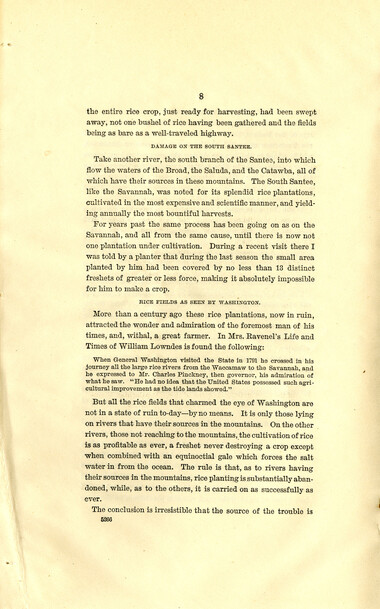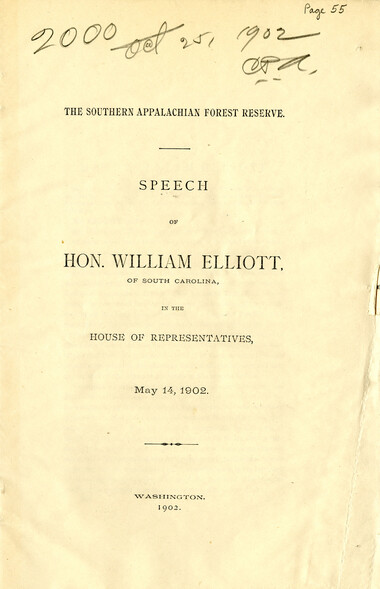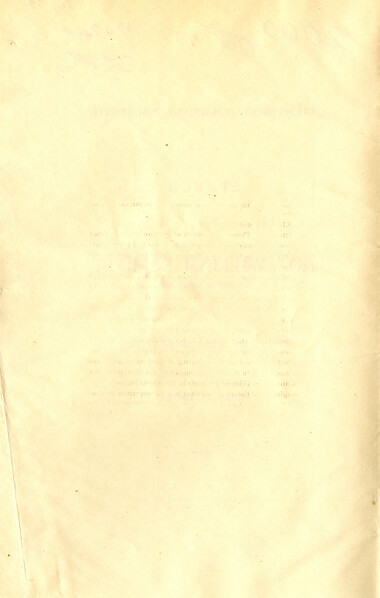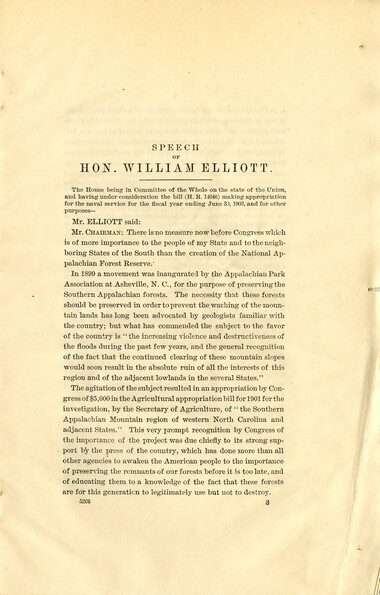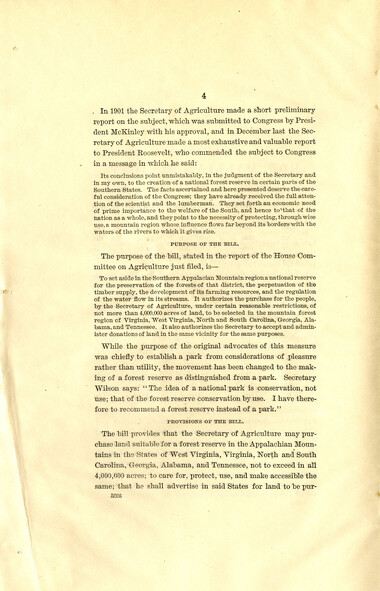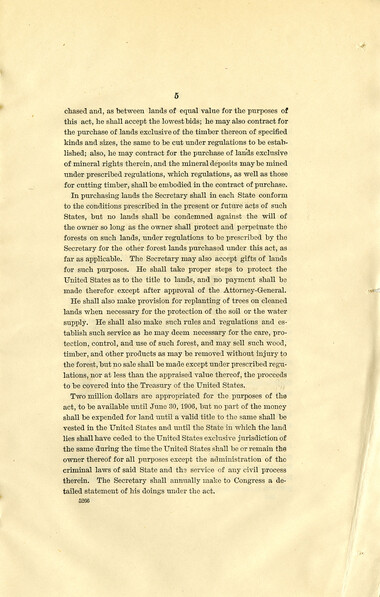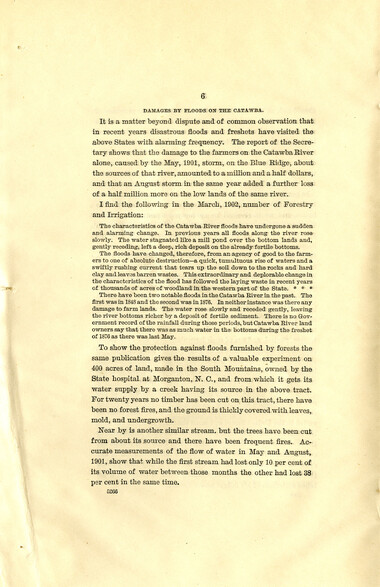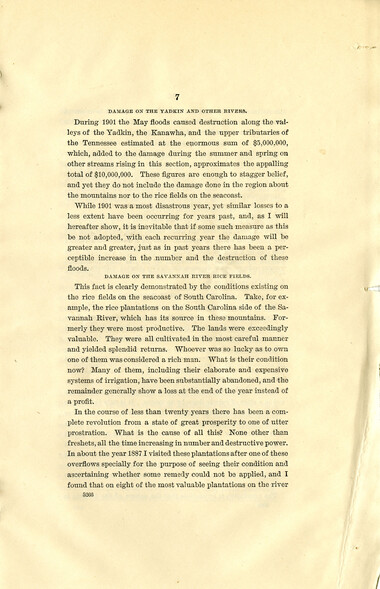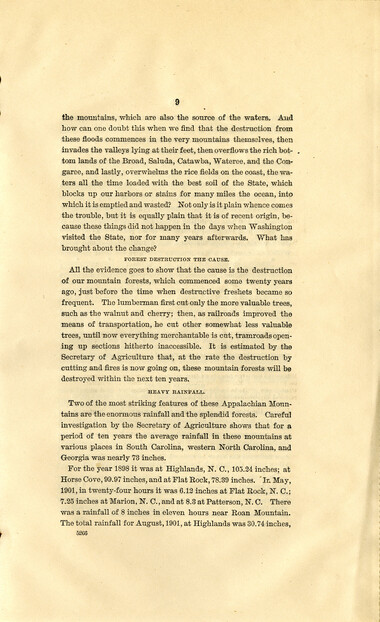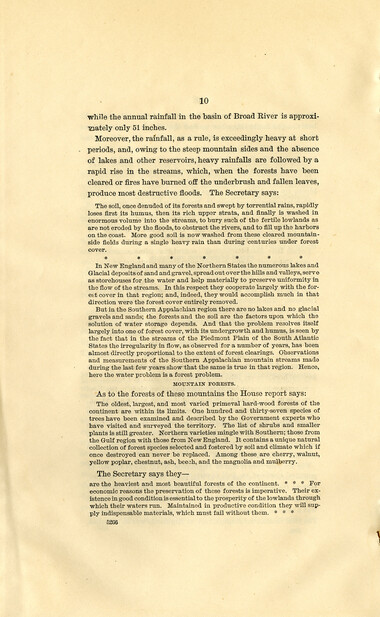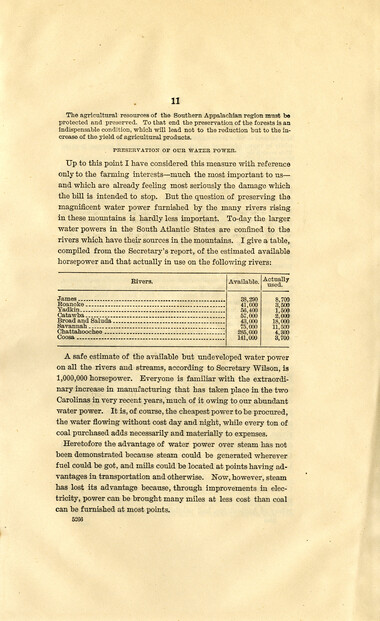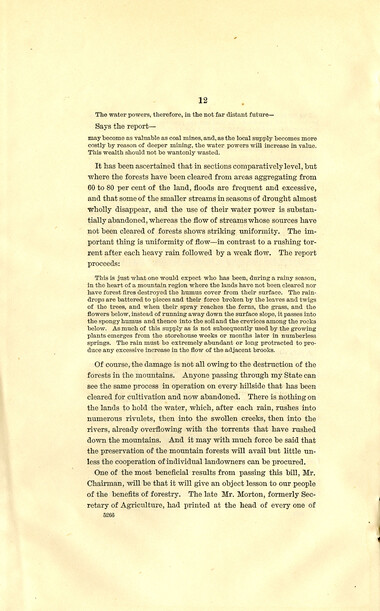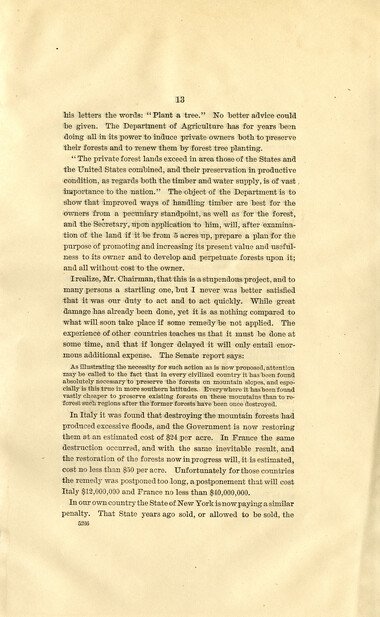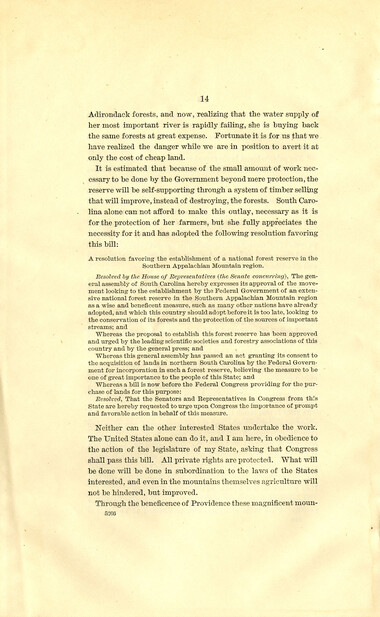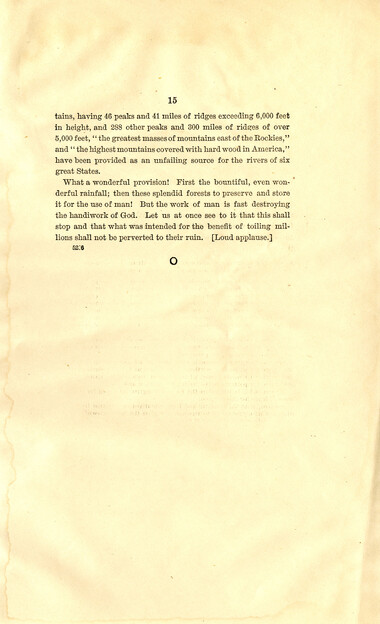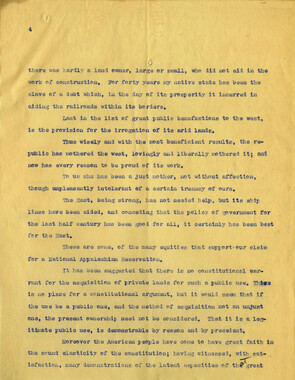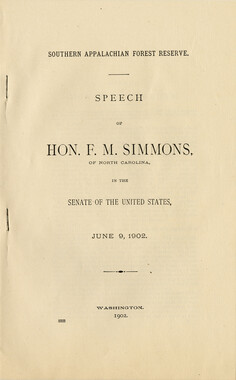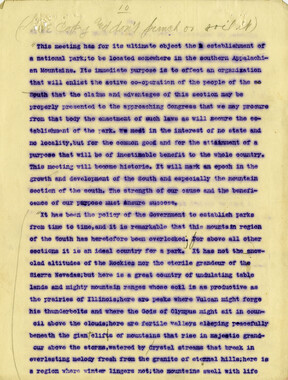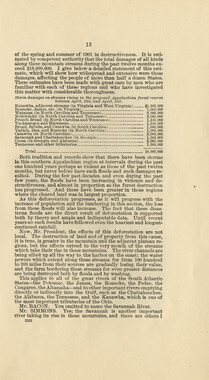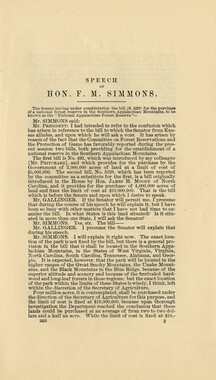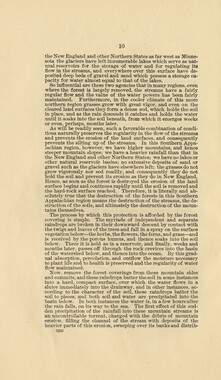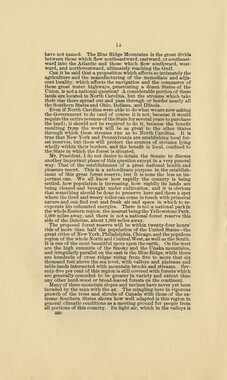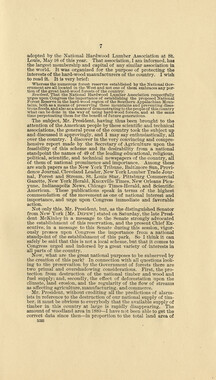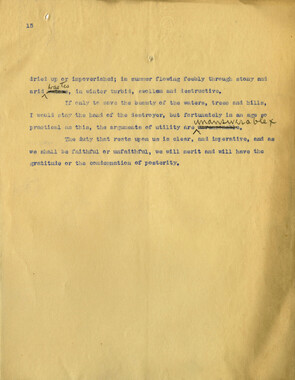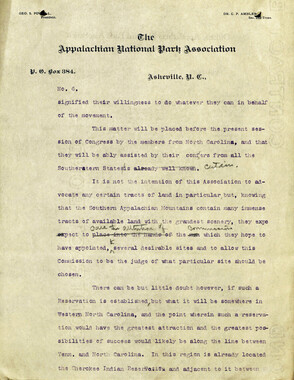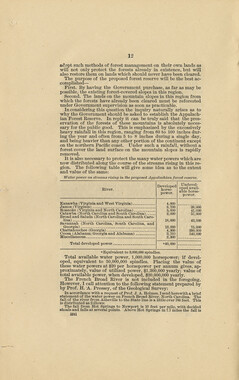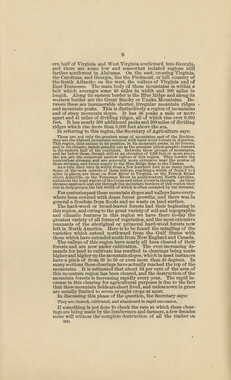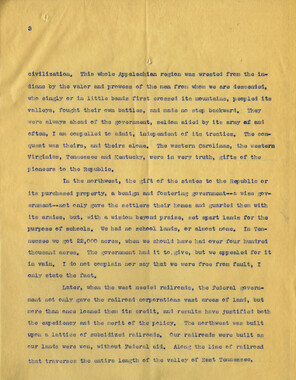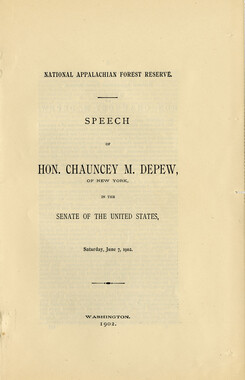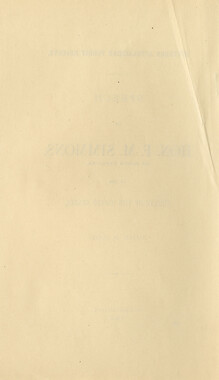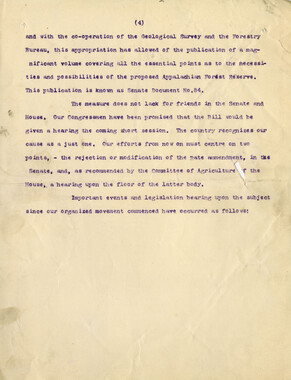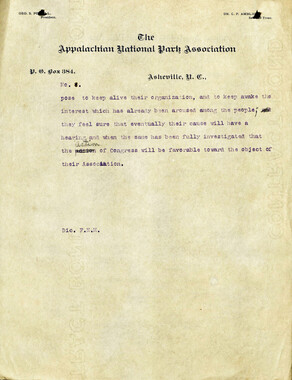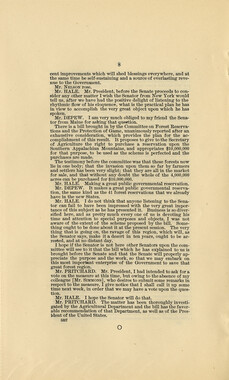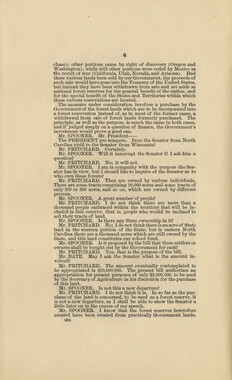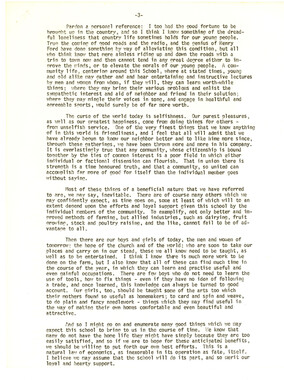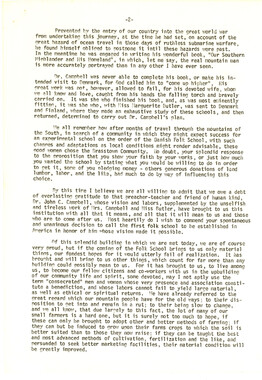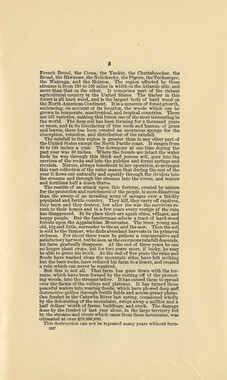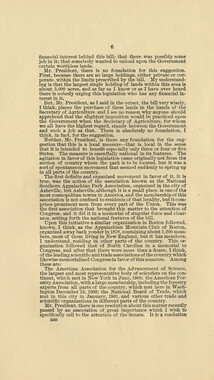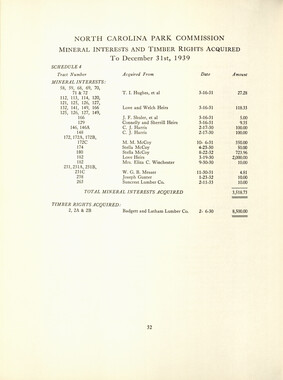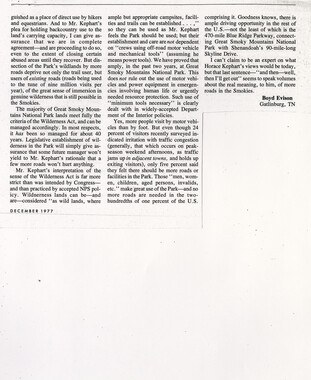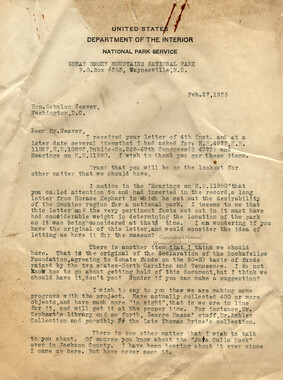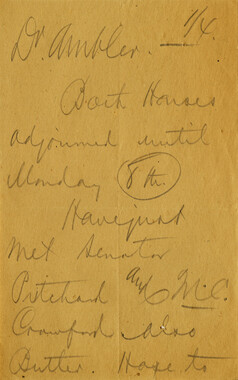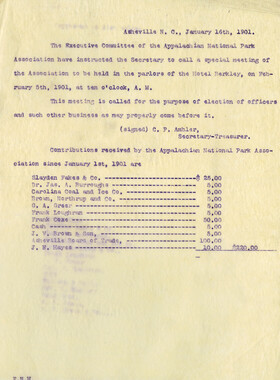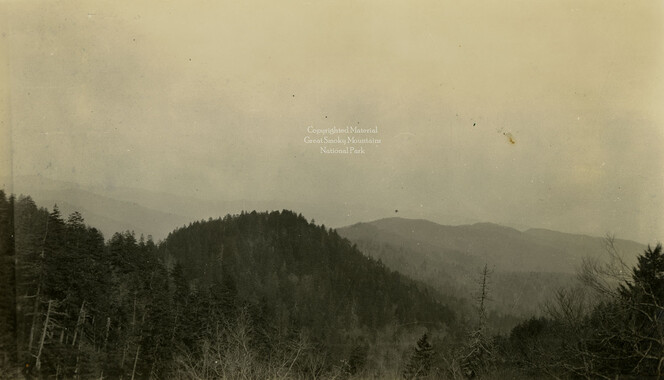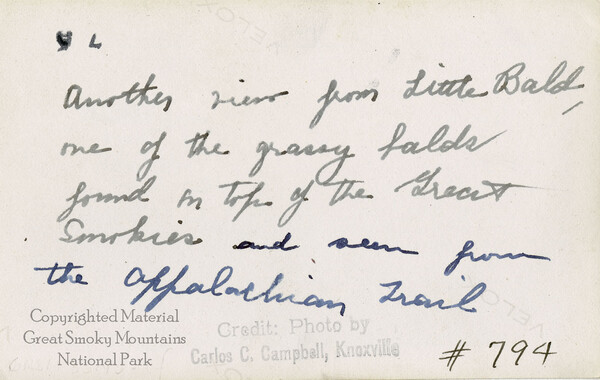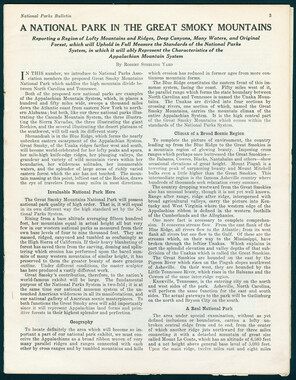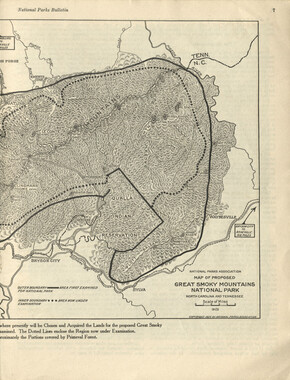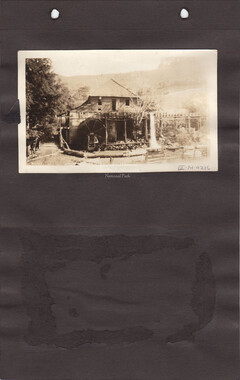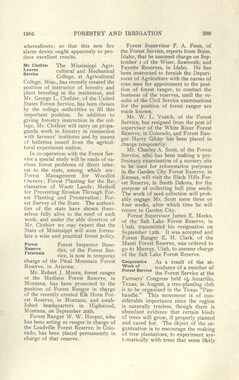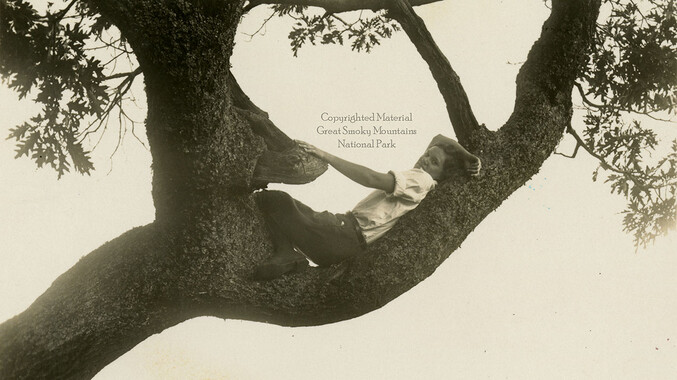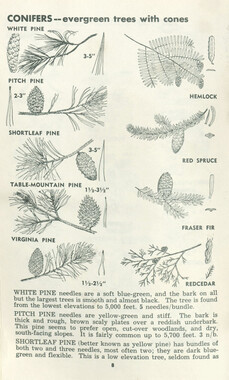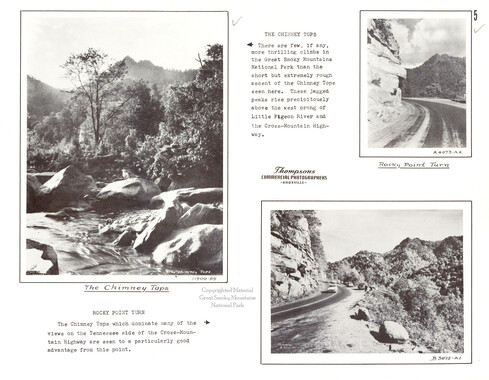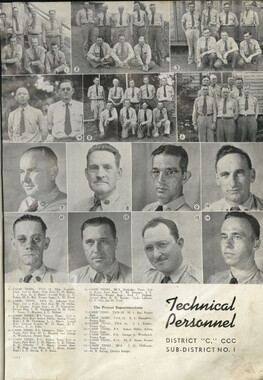Western Carolina University (11)
View all
- Canton Champion Fibre Company (110)
- Cherokee Traditions (7)
- Civil War in Southern Appalachia (1)
- Craft Revival (193)
- Great Smoky Mountains - A Park for America (294)
- Highlights from Western Carolina University (20)
- Horace Kephart (8)
- Oral Histories of Western North Carolina (2)
- Picturing Appalachia (447)
- Travel Western North Carolina (29)
- Western Carolina University: Making Memories (103)
- Journeys Through Jackson (0)
- LGBTQIA+ Archive of Jackson County (0)
- Stories of Mountain Folk (0)
- Western Carolina University Fine Art Museum Vitreograph Collection (0)
- Western Carolina University Herbarium (0)
- Western Carolina University Publications (0)
- Western Carolina University Restricted Electronic Theses and Dissertations (0)
- Western North Carolina Regional Maps (0)
- World War II in Southern Appalachia (0)
University of North Carolina Asheville (1)
View all
- Forestry in Western North Carolina (180)
- Faces of Asheville (0)
- Grove Park Inn Photograph Collection (0)
- Isaiah Rice Photograph Collection (0)
- Morse Family Chimney Rock Park Collection (0)
- Picturing Asheville and Western North Carolina (0)
- Allanstand Cottage Industries (25)
- Appalachian National Park Association (42)
- Ensley, A. L. (Abraham Lincoln), 1865-1948 (274)
- George Butz (BFS 1907) (31)
- Goodrich, Frances Louisa (68)
- Kephart, Horace, 1862-1931 (1)
- North Carolina Park Commission (3)
- Stalcup, Jesse Bryson (36)
- USFS (3)
- Wilburn, Hiram Coleman, 1880-1967 (4)
- Bennett, Kelly, 1890-1974 (0)
- Berry, Walter (0)
- Brasstown Carvers (0)
- Cain, Doreyl Ammons (0)
- Carver, George Washington, 1864?-1943 (0)
- Cathey, Joseph, 1803-1874 (0)
- Champion Fibre Company (0)
- Champion Paper and Fibre Company (0)
- Cherokee Indian Fair Association (0)
- Cherokee Language Program (0)
- Crittenden, Lorraine (0)
- Crowe, Amanda (0)
- Edmonston, Thomas Benton, 1842-1907 (0)
- Fromer, Irving Rhodes, 1913-1994 (0)
- Grant, George Alexander, 1891-1964 (0)
- Heard, Marian Gladys (0)
- Kephart, Calvin, 1883-1969 (0)
- Kephart, Laura, 1862-1954 (0)
- Laney, Gideon Thomas, 1889-1976 (0)
- Masa, George, 1881-1933 (0)
- McElhinney, William Julian, 1896-1953 (0)
- Niggli, Josephina, 1910-1983 (0)
- Osborne, Kezia Stradley (0)
- Owens, Samuel Robert, 1918-1995 (0)
- Penland Weavers and Potters (0)
- Rhodes, Judy (0)
- Roberts, Vivienne (0)
- Roth, Albert, 1890-1974 (0)
- Schenck, Carl Alwin, 1868-1955 (0)
- Sherrill's Photography Studio (0)
- Smith, Edward Clark (0)
- Southern Highland Handicraft Guild (0)
- Southern Highlanders, Inc. (0)
- Stearns, I. K. (0)
- Thompson, James Edward, 1880-1976 (0)
- United States. Indian Arts and Crafts Board (0)
- Vance, Zebulon Baird, 1830-1894 (0)
- Weaver, Zebulon, 1872-1948 (0)
- Western Carolina College (0)
- Western Carolina Teachers College (0)
- Western Carolina University (0)
- Western Carolina University. Mountain Heritage Center (0)
- Whitman, Walt, 1819-1892 (0)
- Williams, Isadora (0)
- 1800s (3)
- 1830s (1)
- 1850s (4)
- 1860s (4)
- 1870s (4)
- 1880s (9)
- 1890s (130)
- 1900s (1394)
- 1910s (317)
- 1920s (139)
- 1930s (60)
- 1940s (12)
- 1950s (5)
- 1960s (1)
- 2000s (3)
- 2010s (1)
- 1600s (0)
- 1700s (0)
- 1810s (0)
- 1820s (0)
- 1840s (0)
- 1970s (0)
- 1980s (0)
- 1990s (0)
- 2020s (0)
- Appalachian Region, Southern (240)
- Asheville (N.C.) (15)
- Avery County (N.C.) (5)
- Blount County (Tenn.) (2)
- Buncombe County (N.C.) (221)
- Cherokee County (N.C.) (8)
- Clay County (N.C.) (1)
- Graham County (N.C.) (1)
- Great Smoky Mountains National Park (N.C. and Tenn.) (6)
- Haywood County (N.C.) (146)
- Henderson County (N.C.) (10)
- Jackson County (N.C.) (343)
- Knox County (Tenn.) (4)
- Macon County (N.C.) (50)
- Madison County (N.C.) (34)
- McDowell County (N.C.) (4)
- Mitchell County (N.C.) (5)
- Polk County (N.C.) (1)
- Qualla Boundary (9)
- Rutherford County (N.C.) (16)
- Swain County (N.C.) (37)
- Transylvania County (N.C.) (151)
- Watauga County (N.C.) (2)
- Waynesville (N.C.) (1)
- Yancey County (N.C.) (1)
- Knoxville (Tenn.) (0)
- Lake Santeetlah (N.C.) (0)
- Aerial Views (14)
- Artifacts (object Genre) (74)
- Clippings (information Artifacts) (16)
- Crafts (art Genres) (24)
- Drawings (visual Works) (1)
- Fiction (general Genre) (1)
- Financial Records (6)
- Fliers (printed Matter) (19)
- Glass Plate Negatives (351)
- Internegatives (1)
- Interviews (2)
- Land Surveys (3)
- Letters (correspondence) (73)
- Manuscripts (documents) (11)
- Maps (documents) (11)
- Memorandums (7)
- Minutes (administrative Records) (15)
- Negatives (photographs) (22)
- Newsletters (2)
- Photographs (631)
- Portraits (380)
- Postcards (67)
- Programs (documents) (14)
- Publications (documents) (30)
- Scrapbooks (2)
- Slides (photographs) (10)
- Sound Recordings (6)
- Speeches (documents) (11)
- Transcripts (31)
- Aerial Photographs (0)
- Albums (books) (0)
- Articles (0)
- Bibliographies (0)
- Biography (general Genre) (0)
- Cards (information Artifacts) (0)
- Depictions (visual Works) (0)
- Design Drawings (0)
- Envelopes (0)
- Facsimiles (reproductions) (0)
- Guidebooks (0)
- Newspapers (0)
- Occupation Currency (0)
- Paintings (visual Works) (0)
- Pen And Ink Drawings (0)
- Periodicals (0)
- Personal Narratives (0)
- Plans (maps) (0)
- Poetry (0)
- Questionnaires (0)
- Sheet Music (0)
- Songs (musical Compositions) (0)
- Specimens (0)
- Text Messages (0)
- Tintypes (photographs) (0)
- Video Recordings (physical Artifacts) (0)
- Vitreographs (0)
- A.L. Ensley Collection (274)
- Appalachian National Park Association Records (268)
- Axley-Meroney Collection (2)
- Bethel Rural Community Organization Collection (1)
- C.W. Slagle Collection (4)
- Canton Area Historical Museum (29)
- Cataloochee History Project (1)
- Elizabeth H. Lasley Collection (1)
- Frank Fry Collection (94)
- George Masa Collection (2)
- Historic Photographs Collection (7)
- Horace Kephart Collection (8)
- Jesse Bryson Stalcup Collection (36)
- Love Family Papers (1)
- McFee-Misemer Civil War Letters (1)
- Norburn - Robertson - Thomson Families Collection (1)
- William Williams Stringfield Collection (1)
- Appalachian Industrial School Records (0)
- Bayard Wootten Photograph Collection (0)
- Blumer Collection (0)
- Carlos C. Campbell Collection (0)
- Cherokee Studies Collection (0)
- Daisy Dame Photograph Album (0)
- Daniel Boone VI Collection (0)
- Doris Ulmann Photograph Collection (0)
- Elizabeth Woolworth Szold Fleharty Collection (0)
- Gideon Laney Collection (0)
- Hazel Scarborough Collection (0)
- Hiram C. Wilburn Papers (0)
- Humbard Collection (0)
- Hunter and Weaver Families Collection (0)
- I. D. Blumenthal Collection (0)
- Isadora Williams Collection (0)
- Jim Thompson Collection (0)
- John B. Battle Collection (0)
- John C. Campbell Folk School Records (0)
- John Parris Collection (0)
- Judaculla Rock project (0)
- Kelly Bennett Collection (0)
- Major Wiley Parris Civil War Letters (0)
- Map Collection (0)
- Mountain Heritage Center Collection (0)
- Pauline Hood Collection (0)
- Pre-Guild Collection (0)
- Qualla Arts and Crafts Mutual Collection (0)
- R.A. Romanes Collection (0)
- Rosser H. Taylor Collection (0)
- Samuel Robert Owens Collection (0)
- Sara Madison Collection (0)
- Sherrill Studio Photo Collection (0)
- Smoky Mountains Hiking Club Collection (0)
- Stories of Mountain Folk - Radio Programs (0)
- The Reporter, Western Carolina University (0)
- Venoy and Elizabeth Reed Collection (0)
- WCU Gender and Sexuality Oral History Project (0)
- WCU Mountain Heritage Center Oral Histories (0)
- WCU Oral History Collection - Mountain People, Mountain Lives (0)
- WCU Students Newspapers Collection (0)
- Western North Carolina Tomorrow Black Oral History Project (0)
- Zebulon Weaver Collection (0)
- African Americans (4)
- Artisans (18)
- Cherokee pottery (2)
- Cherokee women (6)
- Church buildings (1)
- Dams (4)
- Education (4)
- Floods (4)
- Forest conservation (12)
- Forests and forestry (27)
- Great Smoky Mountains National Park (N.C. and Tenn.) (1)
- Hunting (2)
- Logging (11)
- Maps (10)
- North Carolina -- Maps (1)
- Paper industry (5)
- Postcards (49)
- Pottery (3)
- Railroad trains (3)
- Weaving -- Appalachian Region, Southern (79)
- Appalachian Trail (0)
- Cherokee art (0)
- Cherokee artists -- North Carolina (0)
- Cherokee language (0)
- Civilian Conservation Corps (U.S.) (0)
- College student newspapers and periodicals (0)
- Dance (0)
- Folk music (0)
- Forced removal, 1813-1903 (0)
- Gender nonconformity (0)
- Landscape photography (0)
- Mines and mineral resources (0)
- Rural electrification -- North Carolina, Western (0)
- School integration -- Southern States (0)
- Segregation -- North Carolina, Western (0)
- Slavery (0)
- Sports (0)
- Storytelling (0)
- Waterfalls -- Great Smoky Mountains (N.C. and Tenn.) (0)
- Wood-carving -- Appalachian Region, Southern (0)
- World War, 1939-1945 (0)
- Sound (6)
- StillImage (1183)
- Text (217)
- MovingImage (0)
Congressional speech for forest reserve
Item
Item’s are ‘child’ level descriptions to ‘parent’ objects, (e.g. one page of a whole book).
-
-
8 the entire rice crop, just ready for harvesting, had been swept away, not one bushel of rice having been gathered and the fields being as bare as a well-traveled highway. DAMAGE ON THE SOUTH SANTEE. Take another river, the south branch of the Santee, into which flow the waters of the Broad, the Saluda, and the Catawba, all of which have their sources in theso mountains. The South Santee, like the Savannah, was noted for its splendid rice plantations, cultivated in the most expensive and scientific manner, and yielding annually the most bountiful harvests. For years past the same process has been going on as on the Savannah, and all from the same cause, until there is now not one plantation under cultivation. During a recent visit there I was told by a planter that during the last season the small area planted by him had been covered by no less than 13 distinct freshets of greater or less force, making it absolutely impossible for him to make a crop. RICE FIELDS AS SEEN BY WASHINGTON. More than a century ago these rice plantations, now in ruin, attracted the wonder and admiration of the foremost man of his times, and, withal, a great farmer. In Mrs. Ravenel's Life and Times of William Lowndes is found the following: When General Washington visited the State in 1791 he crossed in hi3 journey all the large rice rivers from the Waccamaw to the Savannah, and he expressed to Mr. Charles Pinckney, then governor, his admiration of what he saw. "He had no idea that the United States possessed such agricultural improvement as the tide lands showed." But all the rice fields that charmed the eye of Washington are not in a state of ruin to-day—by no means. It is only those lying on rivers that have their sources in the mountains. On the other rivers, those not reaching to the mountains, the cultivation of rice is as profitable as ever, a freshet never destroying a crop except when combined with an equinoctial gale which forces the salt water in from the ocean. The rule is that, as to rivers having their sources in the mountains, rice planting is substantially abandoned, while, as to the others, it is carried on as successfully as ever. The conclusion is irresistible that the source of the trouble is
Object
Object’s are ‘parent’ level descriptions to ‘children’ items, (e.g. a book with pages).
-
William Elliott (1838-1907) was a South Carolina attorney and politician who served in the U.S. Congress. In this speech before Congress, printed by the Southern Appalachian Forest Reserve, Elliott speaks on behalf of the creation of a National Appalachian Forest Reserve. By May 1902, when this speech was made, the Congressional tide had turned from the creation of a national park to the creation of a national forest. Initiated by the Appalachian National Park Association, in 1903, the association changed its name to the Appalachian National Forest Reserve Association and disbanded in 1905.
-
